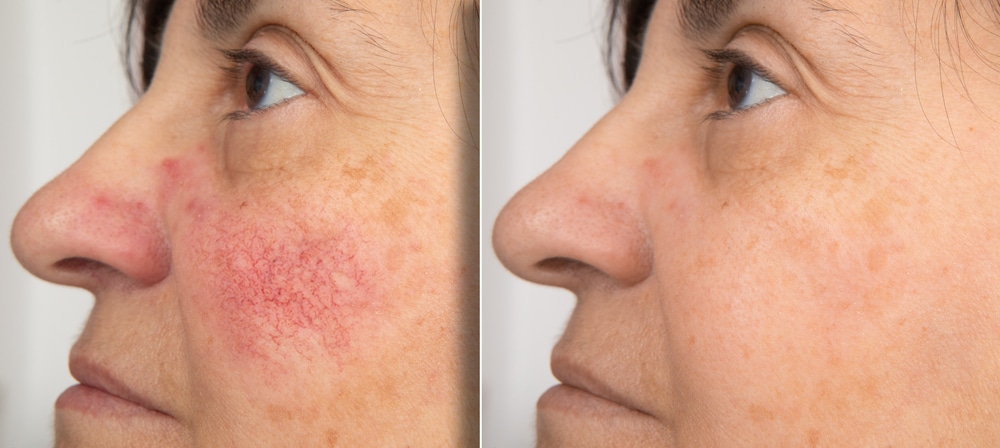Rosacea is a common skin condition that affects millions of people worldwide. It is characterized by redness, broken blood vessels, and pimple-like bumps on the face. If you are dealing with rosacea, finding a treatment that works for you can be frustrating. At HMGS Dermatology, we offer a range of rosacea treatment options to help you manage your symptoms and achieve more precise, healthier-looking skin. We will discuss the causes, symptoms, and treatments available for rosacea.
Causes of Rosacea
The exact cause of rosacea is unknown, but several factors may contribute to its development. These include genetics, environmental factors, and an overactive immune system. Specific triggers, such as spicy foods, alcohol, sun exposure, harsh skincare products, and stress can also exacerbate rosacea symptoms. Many people with rosacea also deal with other skin conditions such as acne, dermatitis, and keratosis pilaris.
Symptoms of Rosacea
Rosacea typically appears as a red flush on the cheeks, nose, chin, and forehead. Visible blood vessels or spider veins and pimple-like bumps may also be present. Other common symptoms (especially with moderate to severe rosacea) include eye irritation, burning or stinging sensations, and a thickening of the skin on the nose.
Treatment Options for Rosacea
At HMGS Dermatology, we offer several treatment options for rosacea, including:
Topical Medications
Metrogel (metronidazole 0.75% or 1%), Finacea (azelaic acid 15%), Soolantra (ivermectin 1%), Epsolay (benzoyl peroxide 5%), Zilxi (minocycline 1.5%) and sodium sulfacetamide/sulfur creams are often used to combat the inflammatory pimples associated with rosacea.
Prescription creams or gels like Mirvaso (brimonidine) or Rhofade (oxymetazoline) may reduce the redness and inflammation associated with rosacea. These medications restrict the blood vessels to reduce flushing. Results are often seen within 12 hours of the application and these prescription creams can be applied daily to soothe the appearance of red skin.
Oral Medications
Oral antibiotics (doxycycline, minocycline) can be prescribed to reduce inflammation associated with moderate to severe rosacea. Isotretinoin can be used off-label to treat severe or recalcitrant rosacea.
Laser Therapy
The Vbeam laser is a pulsed-dye laser that works specifically to target the red blood cells in rosacea-prone skin. By using quick, concentrated pulses of light to target the blood vessels, excellent results can be achieved. Treatment is not considered very painful and there is minimal downtime.
How to Prevent Rosacea
While there is no cure for rosacea, you can take steps to manage your symptoms and reduce flare-ups. Identify and avoid triggers that exacerbate your rosacea symptoms, such as spicy foods, alcohol, and stress. Protect your skin by wearing a broad-spectrum sunscreen with an SPF of 30 or higher to protect your skin from the sun’s harmful rays. To avoid irritating your skin, use gentle, fragrance-free skincare products.
Schedule Your Consultation
Rosacea is a common skin condition that can cause significant discomfort and damage self-esteem. At HMGS Dermatology, we offer a broad range of treatment options to help manage symptoms and improve the skin’s overall appearance. Whether you are looking for prescription medications, laser therapy, or lifestyle changes, our experienced dermatologists can work with you to create a personalized treatment plan. Don’t let rosacea control your life – contact us today to schedule a consultation and take the first step towards clear, healthy skin.
